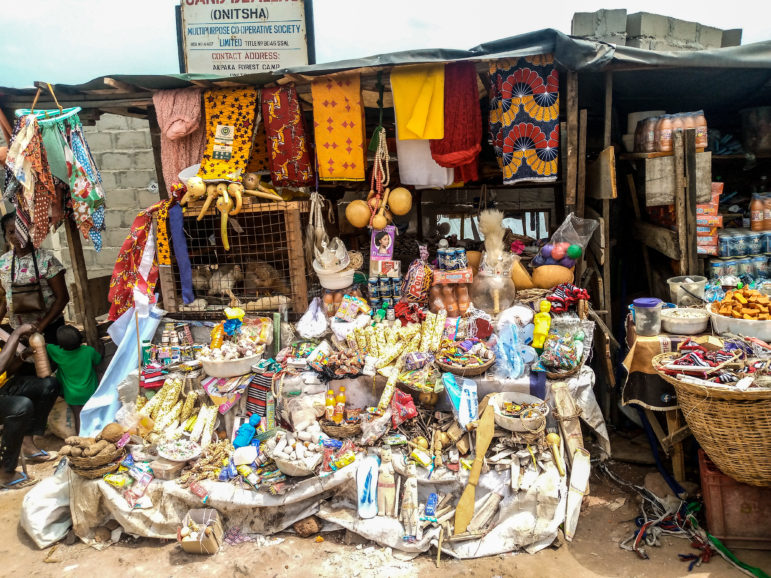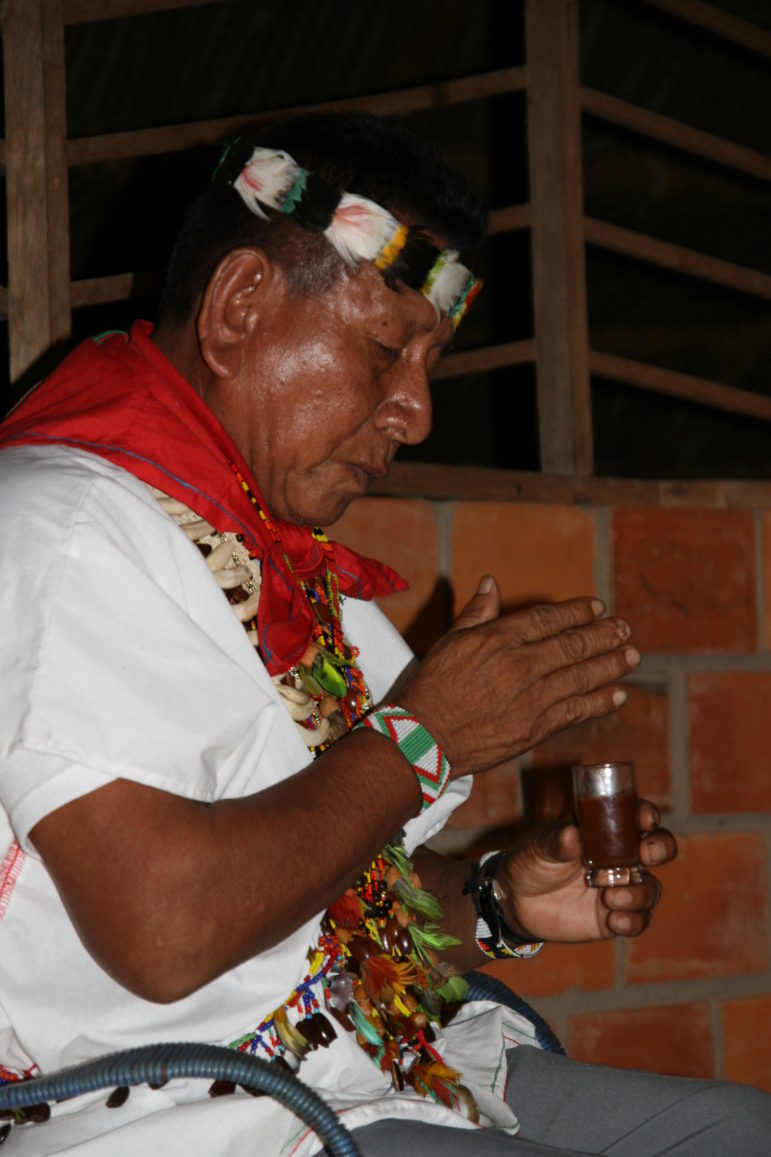This article is the first of a multi-part series focused on interfaith issues and spirituality and the plant world.
TWH – The Harvard Divinity School hosted a hybrid conference on “Ecological Spiritualities” from April 27 to April 30. Spiritual practices and traditions differ in how they relate to the environment.

This conference provided an interfaith approach to understanding those differences. Animists, Buddhists, Christians, Confucians, Muslims, and Pagans presented. No speaker claimed to speak for their entire community.
Hybrid conferences developed in response to the COVID-19 pandemic. One clear benefit is that they have removed the barriers of travel costs to conferences. In that process, they have greatly expanded who can present and who can attend.
Interfaith and Secular Perspectives
Dr. Dorothy Dean, Professor at Hastings College, spoke about climate grief as a spiritual practice. Her presentation could be applied to all practices and traditions as well as secular people.
Dean linked grief with the loss of an irreplaceable other. No one grieves for something that can be easily replaced. People grieve for that which is irreplaceable. Those that grieve for the earth feel that loss to be irreplaceable. Those that grieve for species loss, feel that loss to be irreplaceable.
Dean spoke about the relational aspect of grief and identity. She quoted Judith Butler, “I am what I am by the ties that bind me.”
Dean asked the question, “Who am I when you are gone?”
She spoke about the life in us acknowledging the life outside of us. One must grieve before one can hope. No shortcut exists.
Unlike older people, the young will live to feel the effects of severe climate change. The rise of the “Nones,” among the young, however, leaves them without a strong spiritual framework for resolving collective trauma.
Dean suggested that raised that a secular spirituality could develop in response to climate grief.
Dr. Ikechukwu Anthony Kanu spoke about the approach to the spirituality of the Igbo people and religion, to ecology. Their spirituality “sees nature as interrelated, interconnected, and complementary.”
Kanu said the idea of the environment as property was driving the ecological crisis. In Nigeria, that idea originated with the arrival of colonialism. He argued that a need exists for another way to understand the environment. Kanu feels that the Igbo-African approach could work to resolve the crisis.

Market in Onitsha, Anambra State, Nigeria that sells items used for spiritual, cultural and or traditional purposes – Image credit: Frankincense Diala – CC BY-SA 4.0
The Igbo are not polytheistic. In their cosmology, one Supreme Being exists. In that Supreme Being, other spiritual beings exist. Kanu said these other spiritual beings are working in different departments of the Supreme Being.
For the Igbo, the python, owl, vulture, parrot, and tortoise are sacred animals. The Igbo view the python as Mother. They never kill a python. The owl sings the ancestors. The vulture is a mystical symbol of ancestors. Diviners keep tortoises; they symbolize wisdom.
Trees sacred to the Igbo include the alligator pepper tree, the yam, and the kola nut.
Prior to the influence of colonialism, the Igbo had a four-day week. Each day was linked with a specific spirit. Each day had a set of prohibited behaviors. Kanu said this reduced overconsumption.
Some Igbo people practice both African Traditional Religion and Christianity. Recent surveys show Nigerians are returning to African Traditional Religions. Traditional healers and medicine people are now living in cities.
Spirituality and the Plant World
Dr. Venessa Chakour discussed how herbalism deepened her connection to the land. When she was living in New York, she harvested wild herbs in Prospect Park, Brooklyn. Chakour stressed that people should only harvest abundant plants. Some herbs, like white sage, are threatened due to illegal overharvesting.

Nellie’s Lawn east of Long Meadow in Prospect Park (2006) – Image credit: Garry R. Osgood – CC BY 2.5
When Chakour harvests in public parks, she goes to the interior of the park. That way she avoids those herbs growing near car exhaust fumes. She builds her relationship with plants. Harvesting plants involves taking the life of, or a body part, such as a leaf, from a living being. Harvesting is a relational exchange. As in other relational interactions, negotiations must occur.
Chakour said that in Scottish Gaelic traditions, hawthorn blossoms indicate the awakening of spring. Their berries indicate the arrival of fall. People collect their blooms around Bealltainn (Scots Gaelic), anglicized as Beltane. They collect its berries around Samhain.
A conversation about plants and spirituality would be incomplete without discussing psychoactive plants.
Dr. Silje Trym Mathiassen spoke about spirituality and ayahuasca. For 1000s of years, Amazonian cultures have used psychoactive plants.
Several different psychoactive plants comprise the drink, Ayahuasca. Its active ingredient is the chemical dimethyltryptamine, more commonly known as DMT.
Mathiassen described the spiritual use of Ayahuasca as a relational healing process. And that the ayahuasca ritual lies at a meeting place between humans, the gods, and nature.
She referred to a “relational aliveness,” frequently called animism. Rather than touching trees, humans and trees touch each other. In animistic relationships, humans can learn from plants.

Curandero bendiciendo la ayahuasca (healer blessing the ayahuasca) (2007) – Image credit: François Delonnay/Archivo Centro Takiwasi – Takiwasi – CC BY-SA 4.0
Mathiassen highlighted the perspective of the conference that nature is sacred. The divine is both immanent and transcendent. The divine is more than all that is. Sacramental Ayahuasca rituals cause someone to meet the divine. She said that through the Ayahuasca ritual people “feel a responsiveness, and aliveness” that changes them.
Dr. Maria Fernanda Gebara spoke about Amazonian plant medicine among the Yawanawá. They live around Acre, Brazil near the Peruvian Andes. Gebara used the concept of animism to describe the use of sacred plants among the Yawanawá.
She explained that in animism, we become others. Humans live in a relational and animate world. Gebara said, “being is the experience of encountering.”
The Yawanawá have a guiding principle – “never take more than you can return.”
Gebara also spoke about how tourism, especially “spiritual” tourism, has affected the Amazon.
In one village, when the spiritual leader died, the practice became more materialistic. Wealthy non-native people had come to the Amazon Basin.
The next generation of spiritual leaders spent more time explaining their culture to these spiritual tourists. As a result, the spiritual leader had less time to spend on the needs of the village and the surrounding area.
The Yawanawá believe that plant medicines do not belong to them. Plant medicines belong to the forest.
The Wild Hunt is not responsible for links to external content.
To join a conversation on this post:
Visit our The Wild Hunt subreddit! Point your favorite browser to https://www.reddit.com/r/The_Wild_Hunt_News/, then click “JOIN”. Make sure to click the bell, too, to be notified of new articles posted to our subreddit.